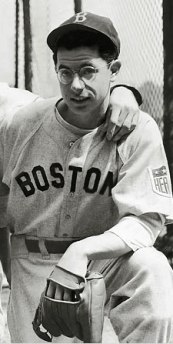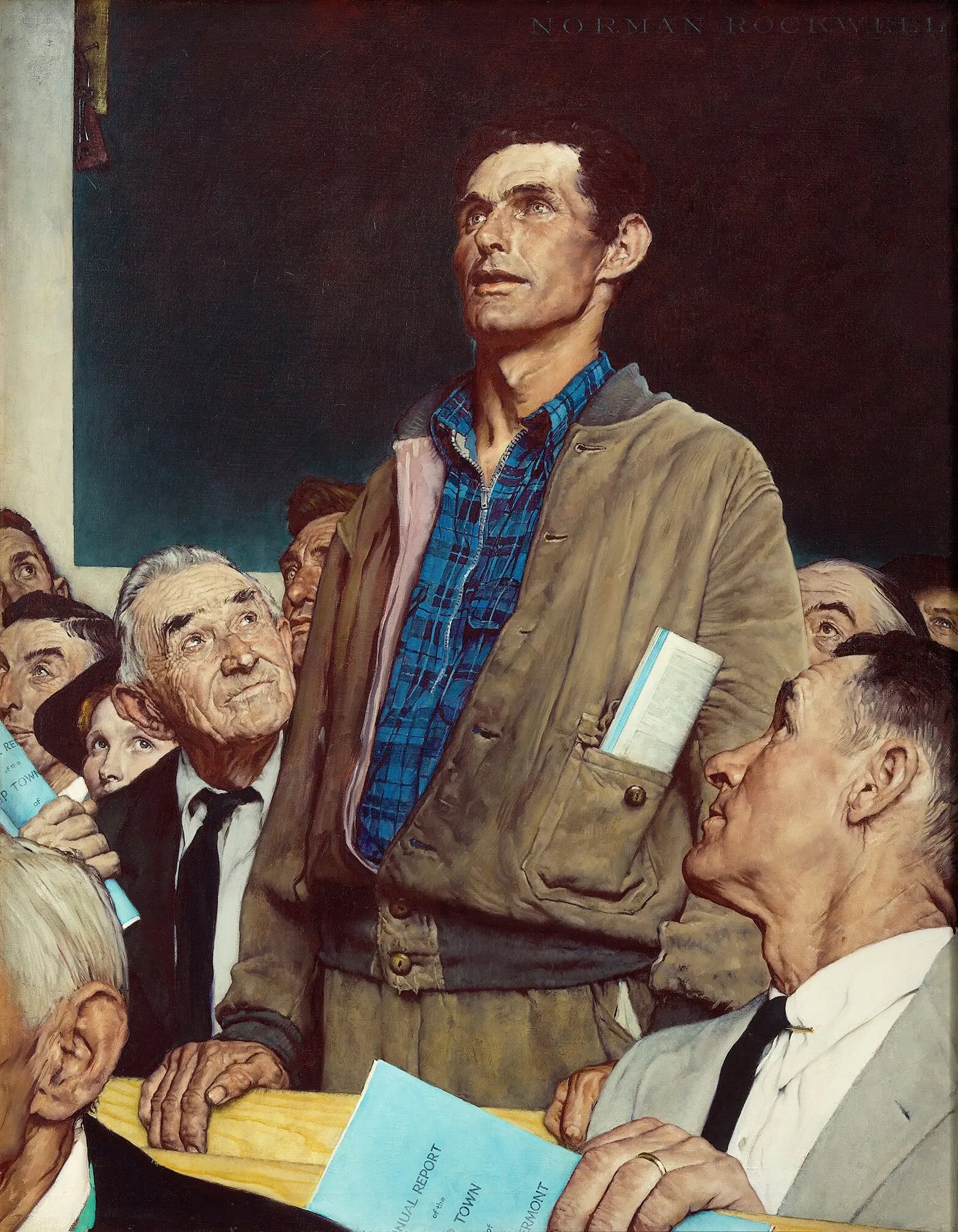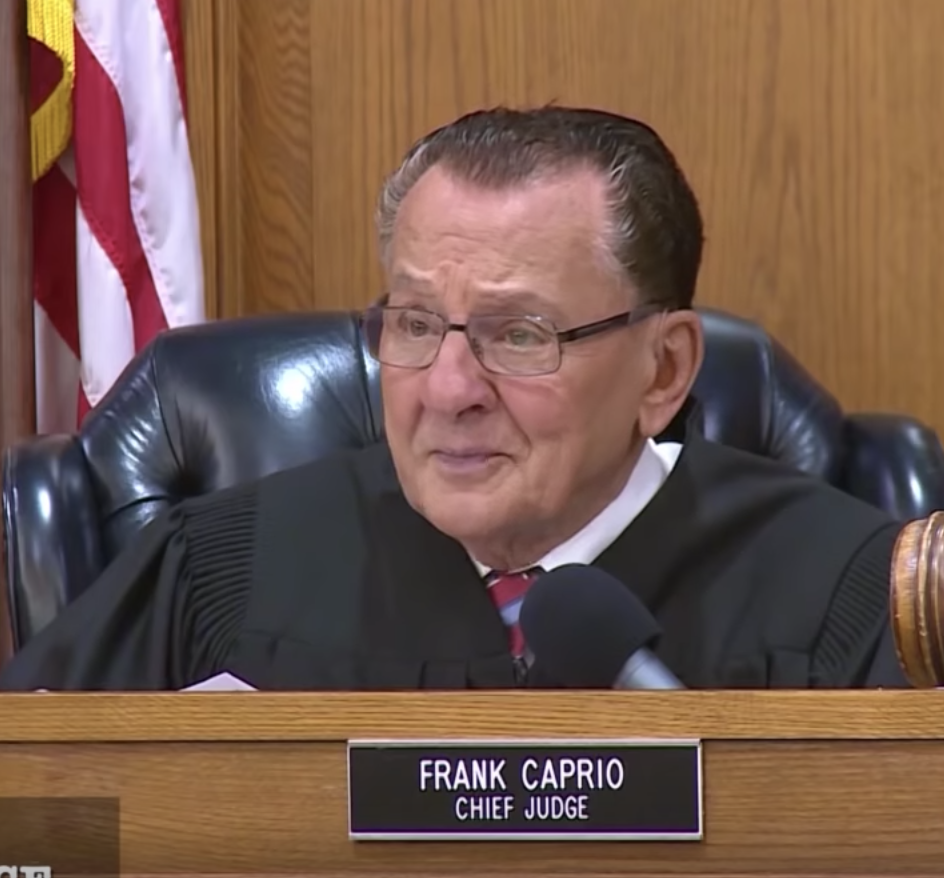Dominic DiMaggio, an all-star center-fielder for the Boston Red Sox during the Ted Williams era, died last Friday at his home in Massachusetts.

Working on my book, What Do You Stand For? I had a chance to talk with Dominic on three occasions. Although his response did not make it in the final version of the book, I’m including it here because it says a lot about an individual who not only contributed to baseball but to life.
During our conversations, I always found Dom to be straightforward, yet restrained about his accomplishments. While writing an introduction about him, he would constantly play-down his own achievements. When I pointed out that what he considered minor achievements, many would consider to be qualities lacking in a great many of today’s ballplayers, he would simply say, “Jim, you go too far.”
Dominic knew his skill-set, did not have to brag or boast. An intense player blessed with an incredible throwing arm, Dom led the American League twice in runs scored and once in triples, who batted .300 four times.
Here’s Dominic’s piece on telling the truth with his “approved” introduction:
I wasn’t around to watch Dominic DiMaggio play for the Boston Red Sox, but I’ll bet I would have enjoyed it. He was dubbed The Little Professor because he wore glasses and acted, well, professorial. Faced with an umpire’s bad call against him, Dom was reported to have said; “I have never witnessed such incompetence in my life!”
The youngest of the three DiMaggio brothers Dom was a lifetime .298 hitter. And except for three games in ’53, he played his entire 11-season career with Boston. In his book,The Summer of ’49, David Halberstam called Dom the most under-rated player of his day.
“Never explain. Your friends don’t need it and your enemies won’t believe you, anyway. Be straightforward and maintain strong ethical values. This will gain you credibility, which is extremely important in life and will earn you an excellent reputation.
“My ‘moment of principle’ came when I voluntarily left baseball early. I had told the Red Sox five years before that when the time came that I felt I should be on the field and wasn’t, then I would leave in a hurry. When I wasn’t playing and I felt I should be, I asked them to release me or trade me. They said ‘no’ to both. I felt my only choice was to leave baseball. And so, I voluntarily retired.”
In October 1999, Dom testified before a Congressional Judiciary Subcommittee on pending legislation, Wartime Violation of Italian American Civil Liberties Act. His words spoke of the injustice faced by many Italian-American families during World War II.
“Mr. Chairman, Members of the Committee, I am pleased to be here today to participate in this hearing. This legislation, theWartime Violation of Italian-American Civil Liberties Act, is important to the Italian-American community and it is important to me. I am here today in hopes that we can bring to light the tragic events of the past and honor those who had to endure them.
“After completing the 1942 baseball season I enlisted in the United States Navy. It was an honor to serve my country and I gladly put my baseball career on hold to do so. However, I had no idea that while I was away fighting for my country, the United States government declared Italian-Americans enemy aliens. It saddens me to think that my mother and father were considered enemy aliens by the country they adored so much.
“I was not the only son who came home from the war to find that their parents, or other members of their family, had suddenly become enemy aliens. Over 500,000 Italians served in the United States Armed Forces. Many of these brave soldiers were fighting to protect the very rights and privileges revoked from their families. In fact, their are several accounts describing how some Italian Americans, so saddened and shamed by their enemy alien status, ended their lives. Should the deaths of these innocent people go unnoticed? I think we should honor those who endured these terrible injustices by, at the very least, acknowledging that they happened.
“I remember my father was forbidden from fishing or even visiting his friends at the wharf because it was in a prohibited zone. I do not know the extent, but I am sure my father was changed after his experience as an enemy alien. The number of people affected by these events will never be known and the effect on the Italian American community can never be measured. What we can do is acknowledge these terrible events and work to ensure that it will never happen again. I want to express my strong support for the legislation before us today and urge the Committee to move this bill forward.”
Dominic DiMaggio was a class act both on and off the field.
Comments










